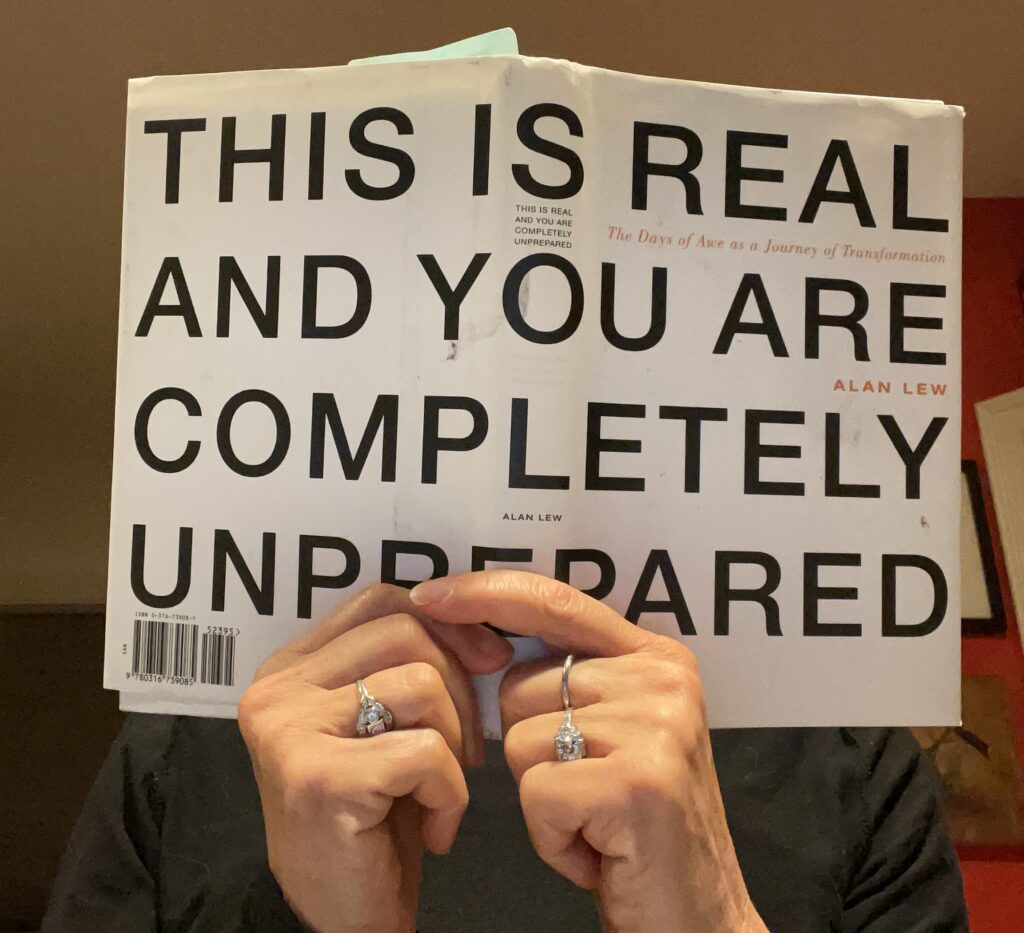Ten days ago, I had the honor of leading our Kabbalat Shabbat service at the start of Elul, the current and final month of the year in the Jewish calendar. It’s been three or four years since I started serving as a lay leader in the kehilah, a role I never imagined I would take on but one which has brought me many blessings. When I started, during the COVID lockdown, I had lots of time to prepare each service – to read devrai torah offerings from multiple rabbis until I found a commentary I really wanted to share, to listen to variations on songs to sing, and the think carefully about the order and timing of it all. But this was only the second service I’ve led since taking on a new full-time job and that night I flew into the sanctuary with little preparation.
I wasn’t totally unprepared. I had gone through the siddur and made a list of songs to sing and reading selections I wanted to highlight. And I did enough thinking to realize this wasn’t just Shabbat; it would be our final Friday night service as a community before Rosh haShanah. It suddenly felt like a lot of responsibility. And that felt like a living embodiment of the title of R’ Alan Lew’s now classic guide to High Holy Days of Awe, This is Real and You Are Completely Unprepared (2003). So I pulled it off the shelf again, looking for inspiration and realizing I needed it now even more than the last time I’d read it.
Under Donna Kayne’s leadership, the KSS Worship Team has gotten into a great habit of planning service leadership many months in advance. In theory this should give us plenty of time to prepare. But on the 3rd of Elul, I ended up on the road for work all day. I barely had time to catch my breath and say hello to my family before arranging the circle of chairs for our gathering.
In the end it all worked out. I was honest about how I was feeling, that I needed to participate in the service as much as lead it, for my own peace of mind, to welcome Shabbat AND to wake up to Elul. As Lew teaches so eloquently, if one shows up for services on Rosh haShanah without any preparation, it’s hard to take advantage of the spiritual potential of the holiday. After all, the Jewish New Year isn’t just about turning a page on a calendar or making resolutions for what you might do in the new year. The central concept of tshuvah, turning, requires deep reflection and that takes time.
For some each day of Elul begins with the blast of the shofar, a sort of alarm clock for the soul. Others engage in guided meditations or creative writing exercises. I’m not being that disciplined this time around, but now that I’ve remembered the potential of this month, when we find ourselves in this liminal space between one cycle of time and another, I am spending time each day taking stock of where I am and how I’m showing up in the world. I’m contemplating relationships I want to work on and dreams I want to manifest in 5785 – for myself, for my family, and in my communities. And I’m thinking about my ancestors who celebrated this time of year as an opportunity for resetting. What are you doing to wake up this Elul?
Shanah Tova b’Shalom,
Here’s to a joyful and peaceful new year. I hope we see you in our sukkat shalom (shelter of peace) this High Holy Day Season. Check our calendar for the full lineup of services and events.
12 Elul 5784 – Jodi

